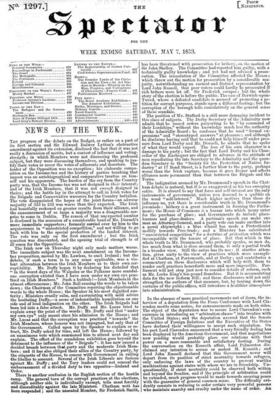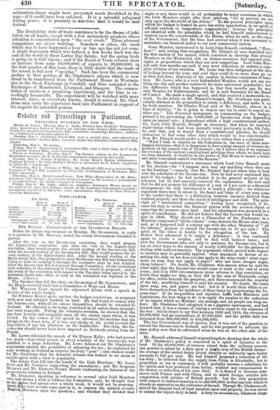In the absence of more practical movements out of doors,
the in- terview of a deputation from the Peace Conference with Lord Cla- rendon merits some notice, for announcements made on both sides. The object of the deputation was to secure Lord Clarendon's con- currence in introducing an " arbitration-clause " into treaties with the United States ; and the deputation averred that the Senate Committee of Foreign Relations and the Executive of the States have declared their willingness to accept such stipulation. On his part Lord Clarendon announced that a very friendly feeling has been displayed by the American Government, and that negotiations now pending would probably place our relations with that power on a more reasonable and satisfactory footing. During the conversation on the Kossuth affair, Lord Palmerston dis- claimed any intention to accuse or molest M. Kossuth ; and Lord John Russell declared that this Government never will depart from its position of strict neutrality towards refugees, only enforcing the laws of the country to prevent warlike machinations against states with whom we are in friendship. Un- questionably, if strict neutrality could be observed both within and beyond the frontier, and if the principle of arbitration could be extended, much progress would be made towards securing peace with the guarantee of general common sense. The difficulty evi- dently consists in reducing to order certain very powerful persona who maintain anarchy and cruelty under the name of order. An arbitration-olause might have prevented much bloodshed in Eu- rope—if it could have been enforced. It is a splendid safeguard during peace; it is precisely in war-time that it would be inef- fectuaL



























